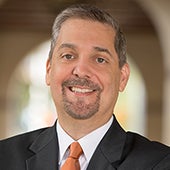Youth violence deeply affects thousands of young people, their families, and their communities every day in the U.S. and abroad. Violence is the third leading cause of death among young people in the U.S., and its effects ripple through lives long after the initial violent act.
Although youth violence affects young people from all racial and ethnic groups, U.S. Latino youth are particularly impacted by the larger global epidemic of youth violence in Latin America. For these young Latinos, connections that may seem distant can directly and profoundly reduce their well-being, as well as that of their families and friends, in the U.S and in their countries of origin.
Honduras, El Salvador, and Guatemala are considered the “northern triangle” of Central America and the region suffers from major drug trafficking fed by the U.S. demand for drugs. Not surprisingly, the violence and instability in the region have led to record numbers of migrants and asylum seekers entering the U.S. Unaccompanied minor children make up an alarming share of this population. In this situation, some parents have had to make the excruciating choice to send their children on perilous journeys across unfamiliar terrain and to unknown conditions with the hope that this might protect them from the ravages of violence.
How Families and Communities Can Make a Difference

Disrupting this violence—connected to gangs with connections across multiple borders—requires mobilizing prevention efforts in the U.S. and countries of origin, and leveraging strengths of families and communities to protect against the risk of gang involvement.
Lead investigators at The University of Texas at Austin, along with collaborators at the University of Oregon, and in-country partners from ChildFund International, are poised to do the disrupting.
A $3 million grant from the Eunice Kennedy Shriver National Institute of Child Health and Human Development—part the National Institutes of Health (NIH)—will test the success of an existing program, Miles de Manos, or Thousands of Hands, in a large-scale trial across Honduras.

The project will be co-led by Charles R. Martinez, Jr., professor and dean of the College of Education, and J. Mark Eddy, professor in the Department of Educational Psychology (EDP) and Department of Kinesiology and Health Education (KHE). Erin Rodriguez, associate professor in EDP will serve as a co-investigator.
Miles de Manos was developed by Martinez, Eddy, and colleagues over a four-year period that involved extensive collaborations with Central American education and health experts, community leaders, families, and governmental representatives. The original development work was funded by the German nongovernmental international development organization, Deutsche Gesellschaft für Internationale Zusammenarbeit (GIZ).
Miles de Manos is currently being implemented in hundreds of schools throughout Central America. In Honduras, it has been identified as a key component of its national education plan. During the course of the five-year project, more than 1,500 students, 1,500 parents and caregivers, and 240 teachers in 30 schools across Honduras will be involved in the study.

Martinez has been working on the project since its inception. “There are few projects in my career that have had a more profound effect on how I think about my work, and how to harness community and family assets to support the positive development of kids, even under the most challenging of situations,” he says.
Martinez notes, “Because we developed the program in true partnership with community stakeholders, the sense of ownership of the program is very high, and is now being scaled across multiple countries. That’s evidence that the need for the program is high, but we need to show that the program also creates lasting change. Our study will be the first randomized trial of this intervention across Honduras.”
A Program Developed with Community and Context at the Center
The program was developed in close partnership with local experts. The development process included an intensive cultural adaptation and integration of three existing U.S.-based violence prevention programs in order to ensure that community strengths, cultural values, and the region’s unique historical context were deeply embedded into the program.
The program was refined through multiple feasibility trials in four Central American countries. Initial results of these early tests of the program indicate promise in terms of Miles de Manos increasing positive teacher and parent behaviors that are instrumental in improving the lives of Latino youth.
Alexandra Loukas, the college’s associate dean for research, notes, “This speaks to the importance of the work and the strong case that our faculty leaders made in showing the repercussive effects that youth violence can have on our communities here in the United States and in Central America.”
Miles de Manos will be housed in the college’s new Texas Center for Equity Promotion.

